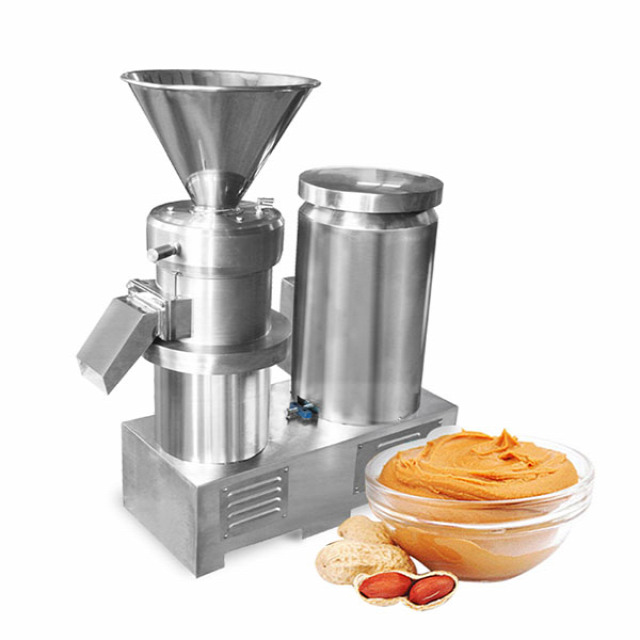In the dynamic and ever-evolving landscape of the food industry, technological advancements play a pivotal role in enhancing production processes and ensuring product quality. One such innovation that has significantly contributed to the transformation of food processing is the colloidal mill. This sophisticated piece of equipment has found its niche in various food applications, providing a versatile solution for the homogenization and dispersion of materials.
Understanding Colloidal Mills:
A colloidal mill is a machine that utilizes a unique grinding and homogenizing process to reduce particle sizes of solid materials suspended in a liquid. It operates on the principle of high-speed shearing and impact forces, allowing for the breakdown of larger particles into smaller, more uniform sizes. In the context of the food industry, colloidal mills are commonly employed for tasks such as grinding, emulsifying, homogenizing, and dispersing.

Key Components and Working Mechanism:
The primary components of a colloidal mill include a rotor and a stator. The rotor, often in the form of a conical or disk-like structure, rotates at high speeds within a stationary stator. The gap between the rotor and stator can be adjusted, influencing the size of the particles produced. As the material is fed into the mill, it undergoes intense mechanical forces, resulting in the reduction of particle size and the creation of a stable colloidal suspension.
Applications in the Food Industry:
1. **Emulsification:**
Colloidal mills excel in the production of stable emulsions by finely dispersing immiscible liquids, such as oil and water. This is crucial in the creation of products like mayonnaise, salad dressings, and various sauces where achieving a uniform texture is essential.
2. **Grinding and Particle Size Reduction:**
In food processing, achieving the desired particle size is often critical for product quality. Colloidal mills are adept at grinding solids into fine particles, contributing to the texture and mouthfeel of products like peanut butter, chocolate, and spreads.
3. **Homogenization:**
The uniform distribution of particles is vital in many food products, such as dairy, where colloidal mills play a key role in homogenizing milk to prevent cream separation. This ensures a consistent product with a smooth texture.
4. **Beverage Production:**
In the beverage industry, colloidal mills are employed for the dispersion of flavorings, stabilizers, and other ingredients. This is evident in the production of beverages like fruit juices, energy drinks, and flavored water.
5. **Pharmaceutical and Nutraceutical Applications:**
Beyond the food industry, colloidal mills find applications in the pharmaceutical and nutraceutical sectors for the production of suspensions, ointments, and various medicinal formulations.
Advantages of Colloidal Mills:
1. **Uniform Particle Size:**
Colloidal mills offer precise control over particle size distribution, contributing to the consistency and quality of the final product.
2. **Efficient Process:**
The high-speed shearing action of colloidal mills ensures efficient and rapid processing, reducing production time and energy consumption.
3. **Versatility:**
The adaptability of colloidal mills makes them suitable for a wide range of applications, from food processing to pharmaceuticals.
4. **Stability:**
Colloidal mills create stable suspensions, preventing separation or settling of particles over time, leading to a longer shelf life for products.
Conclusion:
In conclusion, colloidal mills have emerged as indispensable tools in the food industry, offering a versatile and efficient solution for various processing challenges. Their ability to homogenize, emulsify, and grind materials with precision has revolutionized the production of a myriad of food products. As the industry continues to evolve, the role of colloidal mills is likely to expand, contributing to the creation of new and innovative food formulations that meet the ever-changing demands of consumers. If you want a colloid machine, please contact Tianzhong Machinery.

